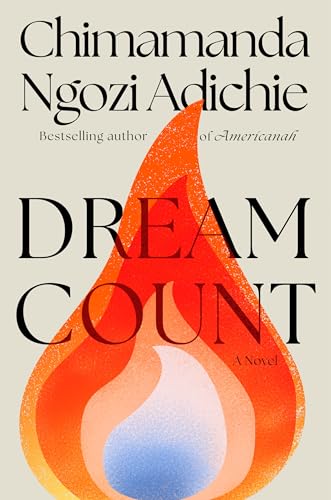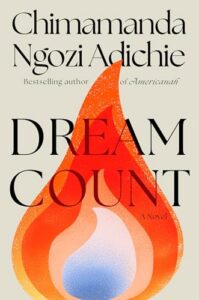Book Summary
Chimamanda Ngozi Adichie’s long-awaited novel, Dream Count, weaves together the lives of four African women during the COVID-19 pandemic. Chiamaka, a Nigerian travel writer, reflects on her romantic failures while isolated in America; Zikora, a lawyer, grapples with betrayal and single motherhood; Omelogor, a sharp-tongued banker-turned-academic, critiques societal norms; and Kadiatou, a Guinean housekeeper, faces a harrowing sexual assault case inspired by the Dominique Strauss-Kahn scandal. Their stories intersect through themes of love, loss, and resilience, offering a mosaic of female experiences.
Adichie’s narrative is less a linear plot and more a series of profound character studies, with the pandemic serving as both backdrop and catalyst for introspection. While some critics find the structure disjointed, others praise its emotional depth and unflinching honesty. The novel’s strength lies in its ability to balance intimate personal struggles with broader social commentary, making it a standout in contemporary literary fiction.
Key Themes
Dream Count delves into the complexities of female identity, particularly through the lens of immigration, class, and trauma. Adichie explores how women navigate societal expectations—whether it’s Chiamaka’s quest for romantic fulfillment, Zikora’s battle with motherhood stereotypes, or Kadiatou’s fight for justice in a system stacked against marginalized voices. The pandemic amplifies their isolation, forcing each woman to confront unresolved grief and unmet desires.
Another central theme is the tension between individual agency and systemic oppression. Omelogor’s subversive blog (“For Men Only”) and Kadiatou’s assault case highlight Adichie’s critique of power dynamics. The novel also interrogates the “American Dream,” revealing its hollow promises for immigrants like Kadiatou, whose resilience contrasts starkly with the fragility of legal justice.
What Makes It Unique
Unlike Adichie’s previous works, Dream Count leans heavily into fragmented storytelling, with each character’s section reading like a standalone novella. This structure polarizes readers: some appreciate the deep dives into each woman’s psyche, while others crave more narrative cohesion. The novel’s rawness—especially in depicting childbirth, fibroids, and sexual violence—sets it apart from conventional “pandemic fiction.”
Adichie’s decision to fictionalize the Strauss-Kahn case through Kadiatou’s story is particularly bold. By centering a marginalized woman’s perspective, she challenges the media’s erasure of victims like Nafissatou Diallo. However, some critics argue this storyline feels disconnected from the others, creating tonal whiplash between sections.
Reader Reactions
Early reviews praise Adichie’s “masterly sentences” (The Guardian) and the novel’s “unfiltered portrayal of passionate, vulnerable women” (The Conversation). Many readers resonate with Chiamaka’s pandemic loneliness, calling it “the most accurate depiction of lockdown ennui in literature.” Kadiatou’s storyline has sparked discussions about #MeToo and immigrant resilience, with one reviewer noting, “I finished the book furious at the world but in awe of Adichie’s storytelling.”
Critics highlight flaws, too. Vulture calls the men “one-note villains,” while The Stanford Daily critiques the “Frankenstein’s monster” structure. Despite this, the novel maintains a 4.1/5 on Goodreads, with fans celebrating its “emotional urgency” and “poignant observations on love and loss.”
About the Author
Chimamanda Ngozi Adichie is a Nigerian literary icon, renowned for Half of a Yellow Sun and the TEDx talk “We Should All Be Feminists” (sampled by Beyoncé). A MacArthur Fellow, she’s known for blending incisive social critique with intimate character studies. Her decade-long hiatus from fiction—marked by parental loss and public controversies—infuses Dream Count with a palpable sense of grief and defiance.
This novel is deeply personal; Adichie’s author’s note reveals it’s “really about my mother.” Her trademark themes—immigrant identity, feminist solidarity, and the weight of history—are refined here with sharper cynicism and darker humor, reflecting her growth since Americanah.
Memorable Quotes
“I have always longed to be known, truly known, by another human being.”
“Dear men, the best way to reduce abortion is to watch where your male bodily fluids go.”
“Thank God her father was dead, to save him the shame of seeing her called a prostitute in front of the whole world.”

